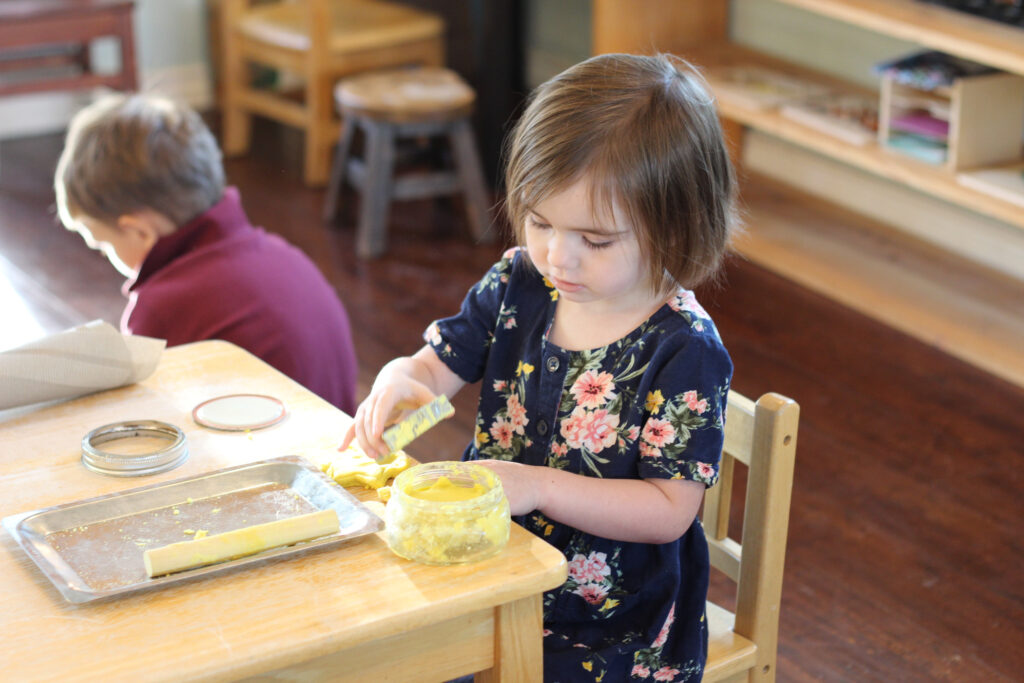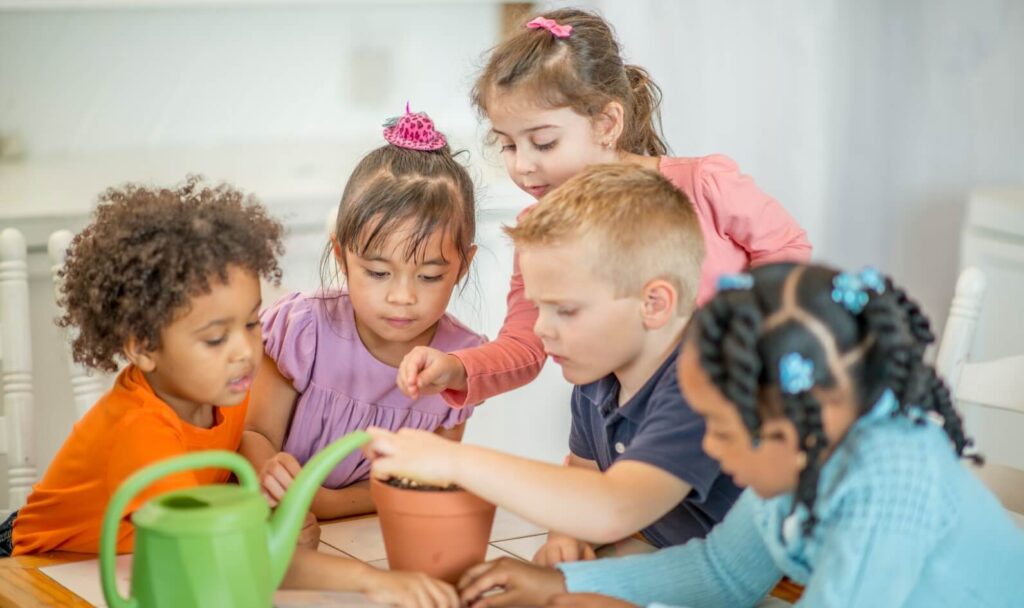Maria Montessori once said: “Play is the work of the children”. Play and learning go hand in hand and they cannot be detached from each other. From the viewpoint of a child, play is a lab, where toys are tools. As kids play, they learn to develop new skills, solve problems and grasp the world around them. Whether children work on developing creative skills or establishing social relations, they deal with activities with a playful and tireless spirit.
According to the Montessori preschool education philosophy, kids don’t need to be taught. Rather they need appropriate spaces, where they can follow their innate capacity for learning. However, there can be situations, when children may need intervention of teachers or parents to set an example of a certain activity. Generally, play in Montessori programs for children is a self-directed learning process.

Peculiarities of Montessori play-based learning
Children engage in play-based learning and reinforce their knowledge across a range of subject areas. During cooking classes, they unleash their cooking potential by creating recipes, drawing menus and experimenting with ingredients. Kids perform real practical activities and gain rich learning experience, which builds their self-esteem and confidence and leads to their success.
• Play is self-chosen
According to the Montessori preschool education philosophy, play is a self-chosen and self-developing process. In the Montessori classroom, children are free to choose what they want to do and what to engage with, from individual work to group activities with peers. There are neither time limits, no teacher instructions telling them what to do. Freedom to play at Montessori implies freedom to leave. Thus, when a teacher suggests a new activity, a child can politely back out of joining it and get involved in something else.
• Process is more meaningful than results
Play has goals, but children usually comprehend them as a part of the game. When doing a puzzle, we are mostly directed towards finishing it. For Montessori children, the primary goal is not just a result itself, but also the process they are involved to achieve it. That is why there is a great number of play-based programs for kids in the Montessori approach that include work with sensorial objects, such as building blocks or fitting materials in the right spots. Such activities expect children to repeat several actions, which challenge them to cope with more complicated tasks.

• Play is imaginative, yet real
Traditionally, pretend play and distinction between real and unreal are usually a part of the learning process. Children prepare meals to dolls, pretend eating cakes from sand or dress up as princesses or knights who set off on a journey to fantasy countries. In the Montessori classroom, there are no pretend things and tools – kids deal with real objects and carry out real actions. In such a way, they can make better sense of the real world, which drives them to grow into strong, but still needy and dependent individuals.
However, it doesn’t mean that Montessori children lack in imaginative play. Children engage in an array of activities that foster their creativity and imaginative thinking. Imagination is at the forefront of kids’ experience, when they travel to far away countries, get acquainted with dinosaurs or maybe climb up snowy mountains.

Through play, children develop essential motor skills, develop cognitive concepts, enhance memory skills, enrich language and learn to interact and negotiate with people. The role of play shouldn’t be either underestimated, or separated from the learning process. As kids play in a stimulating, supportive environment, they move on to higher levels of thought and make their way through the world.


